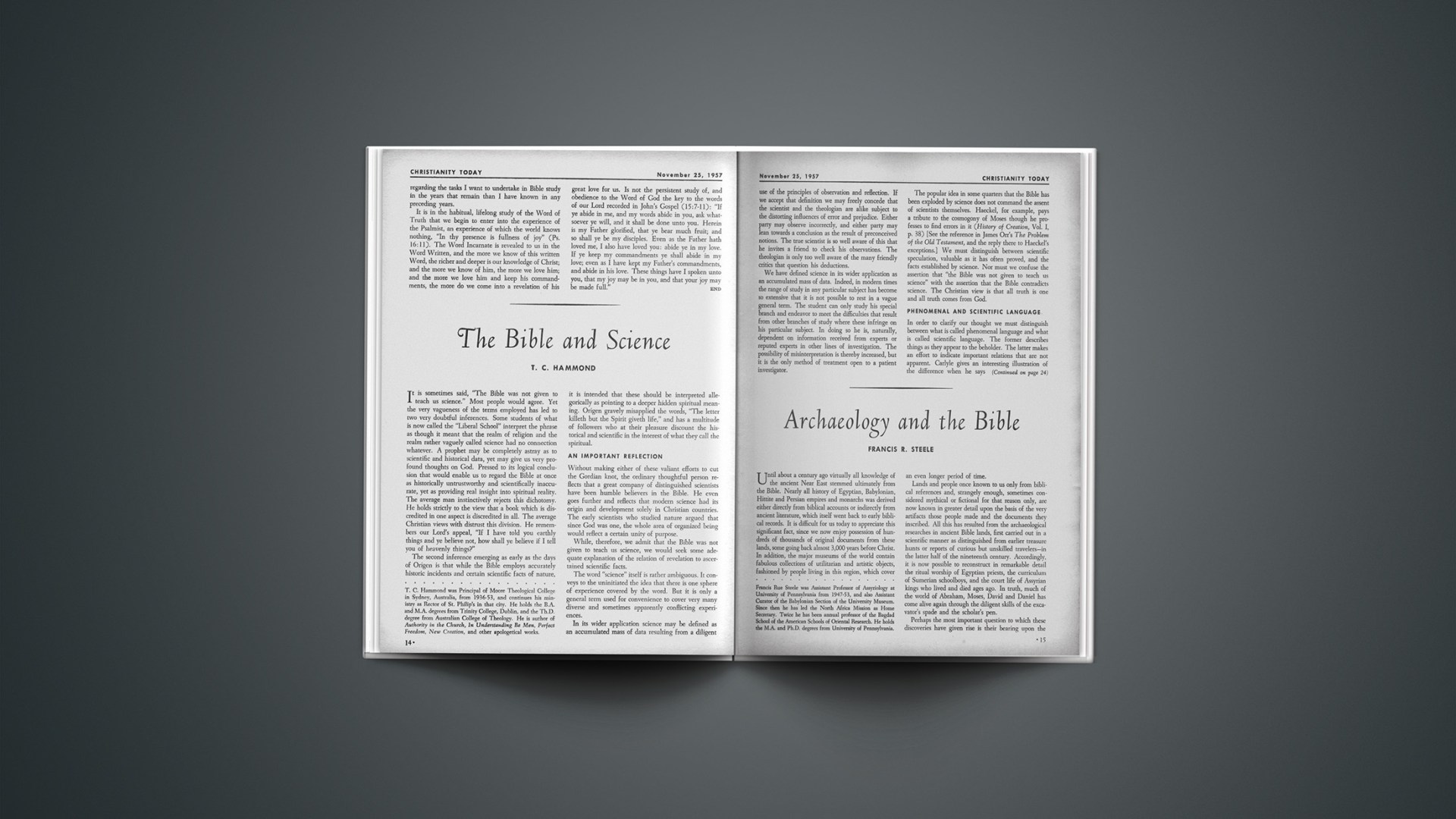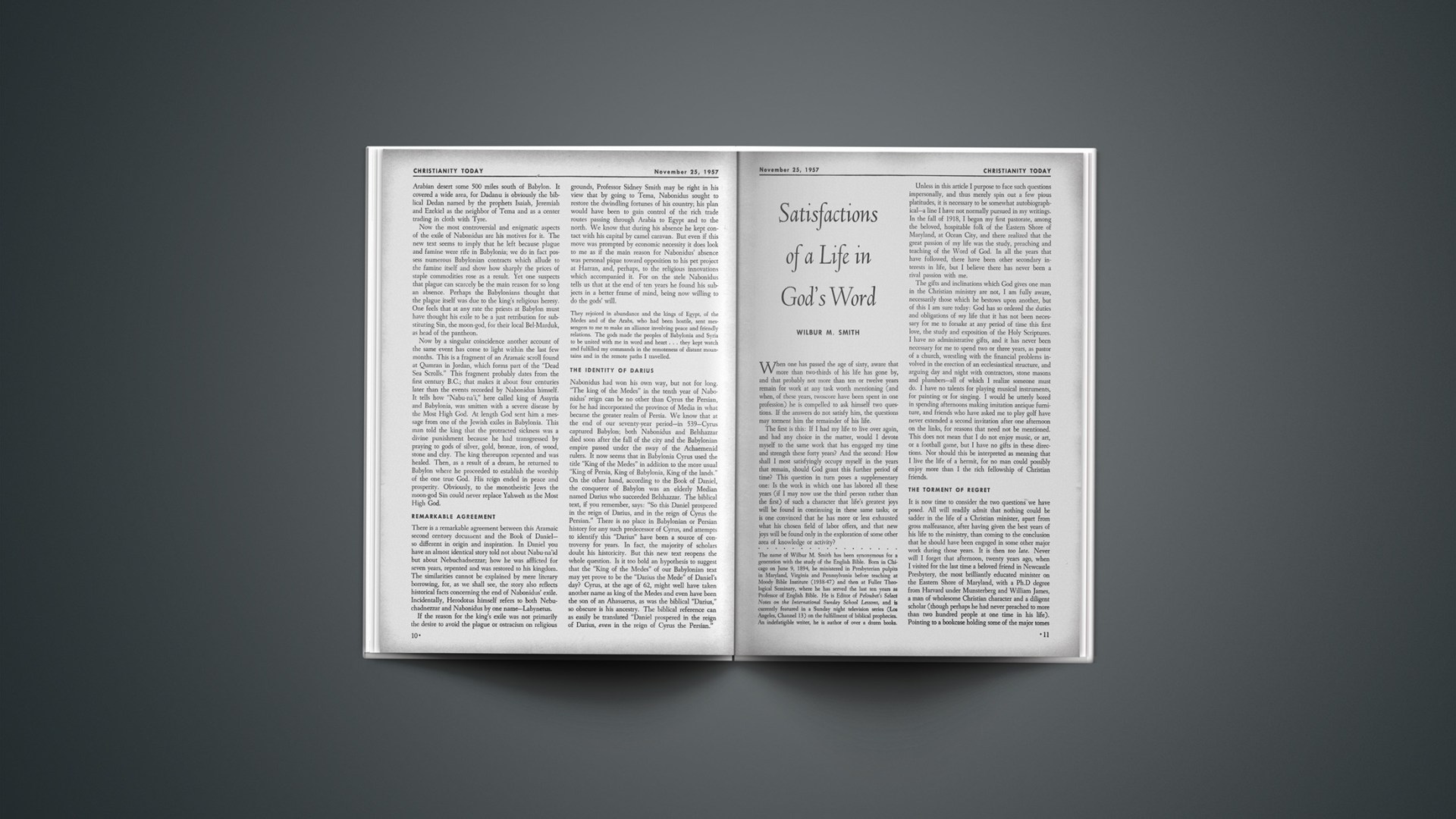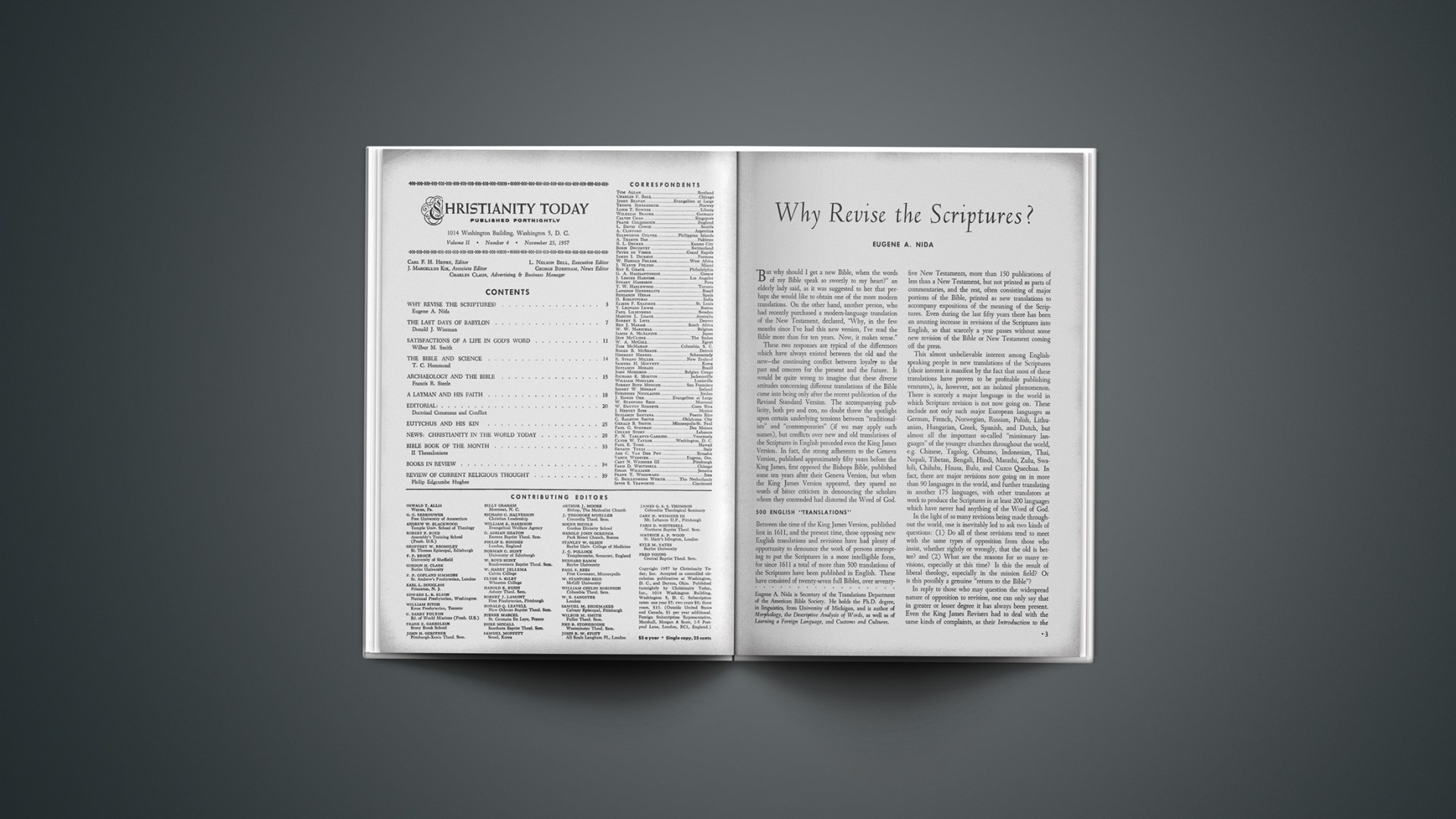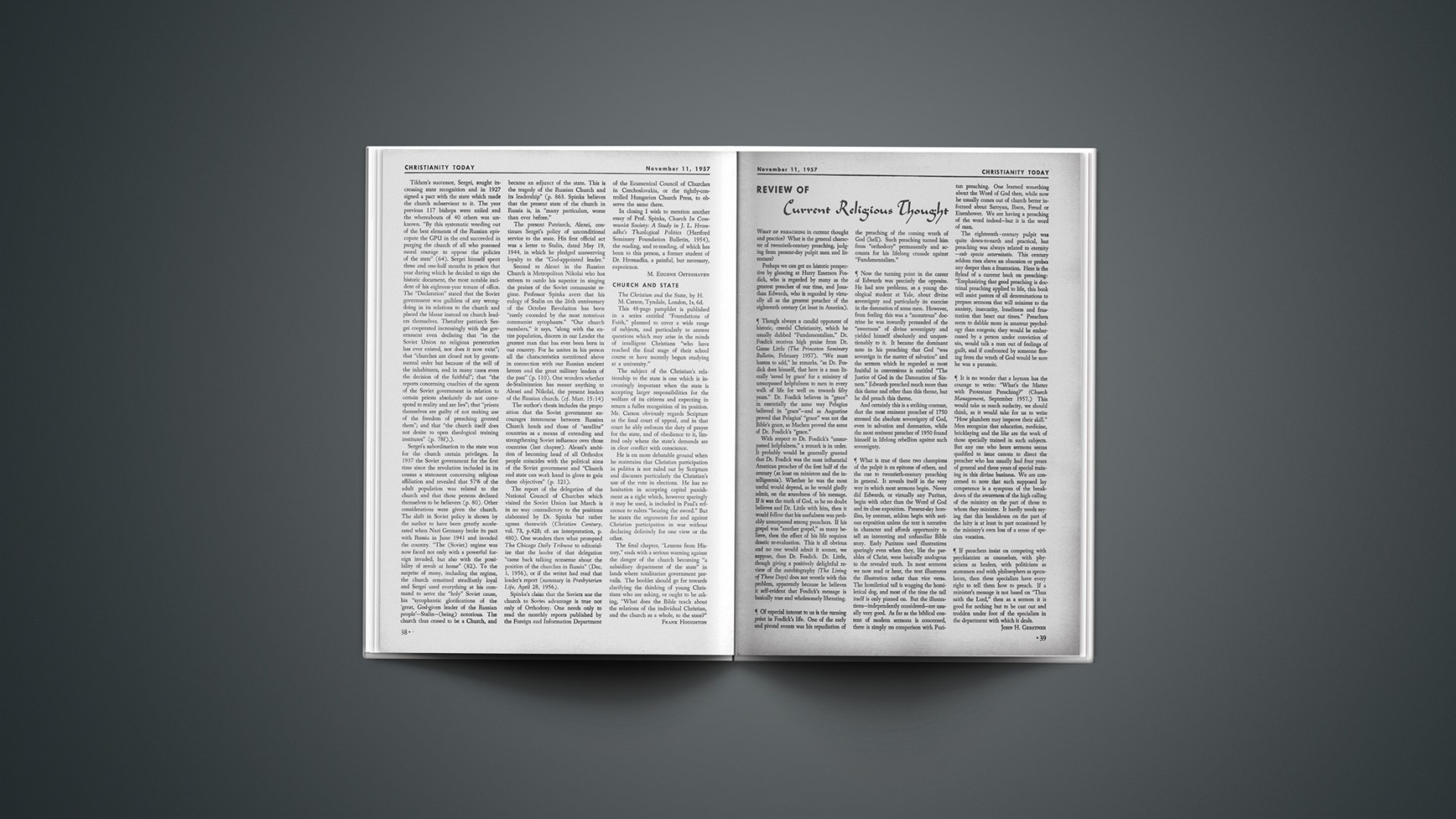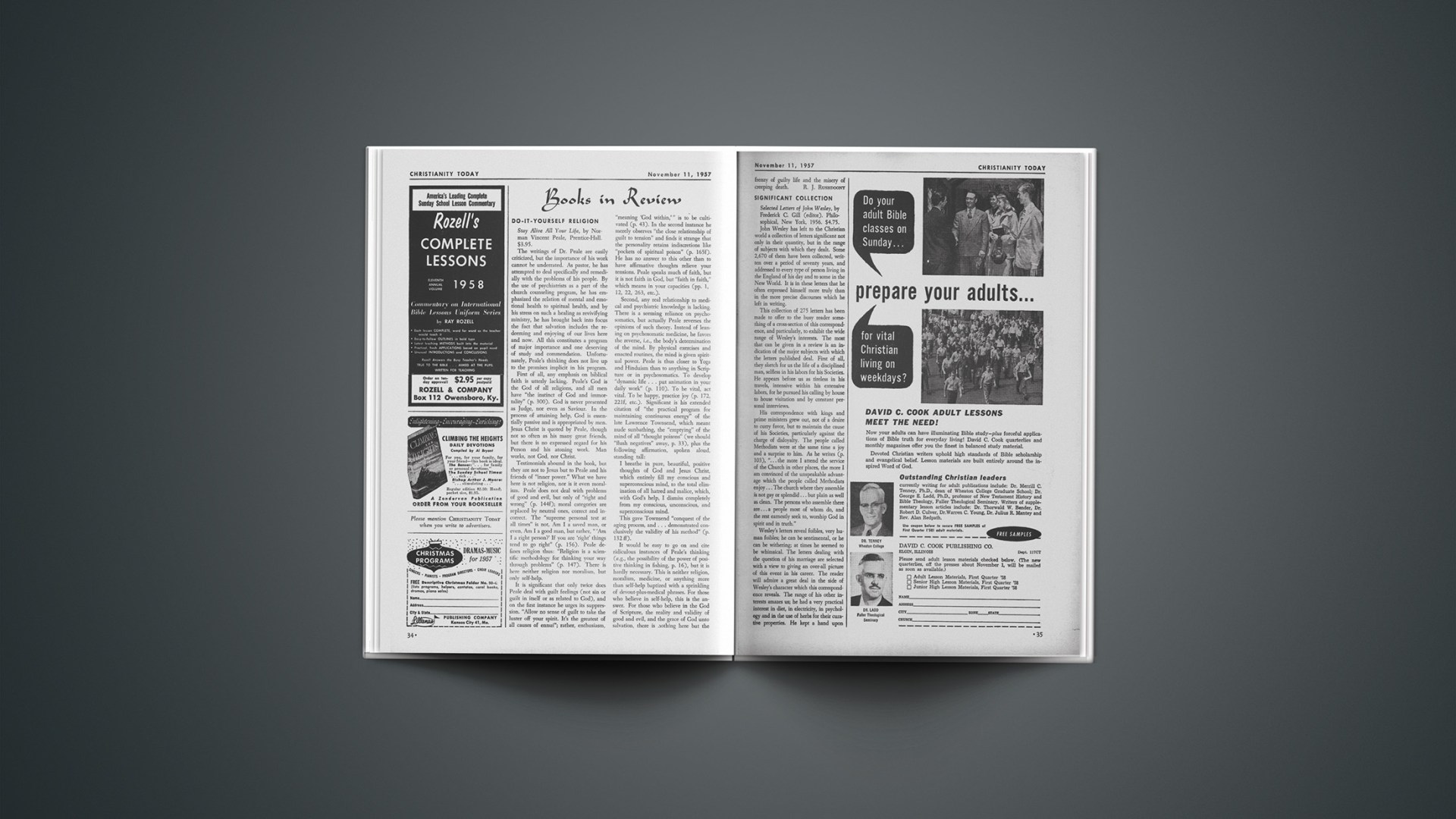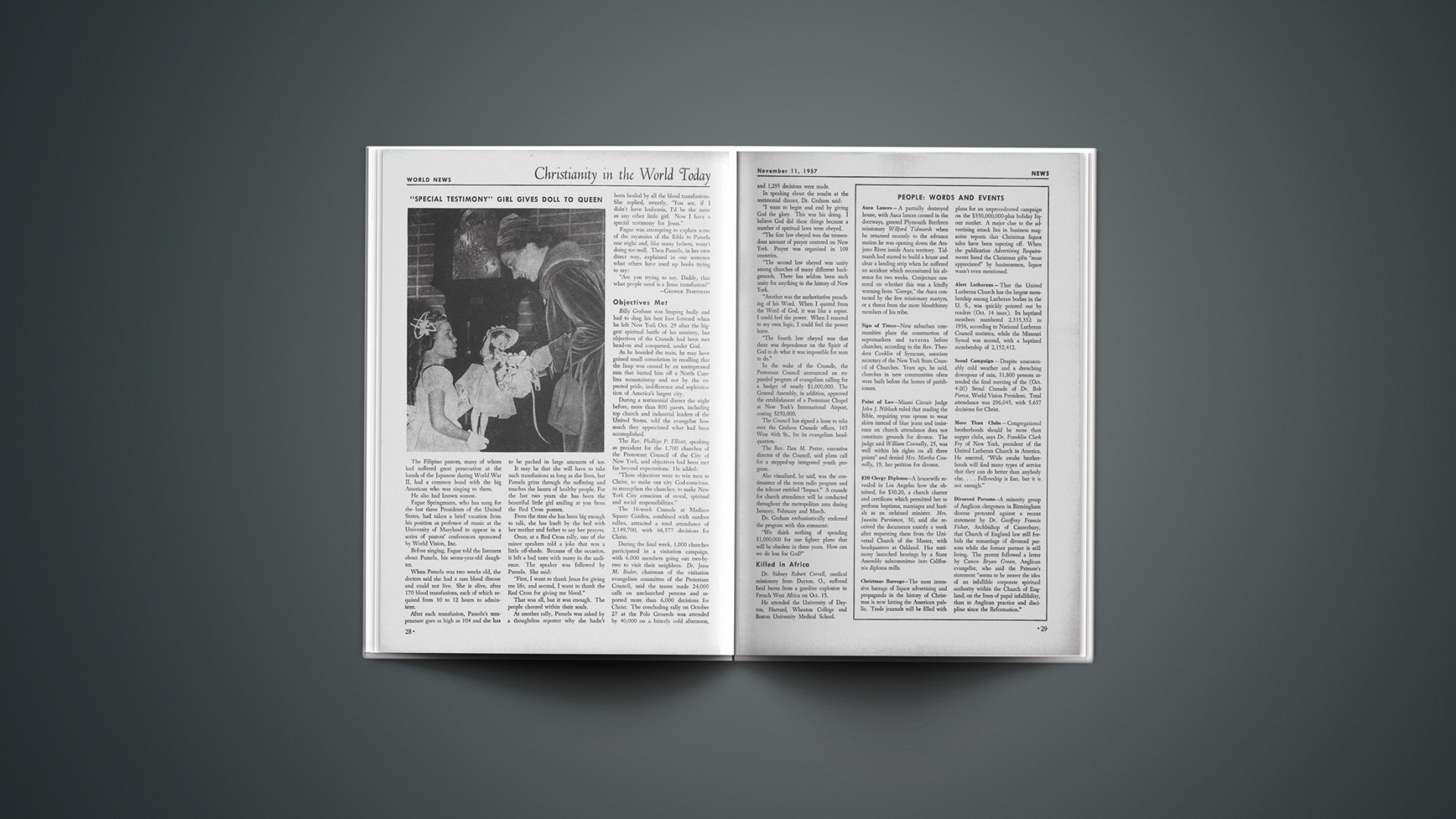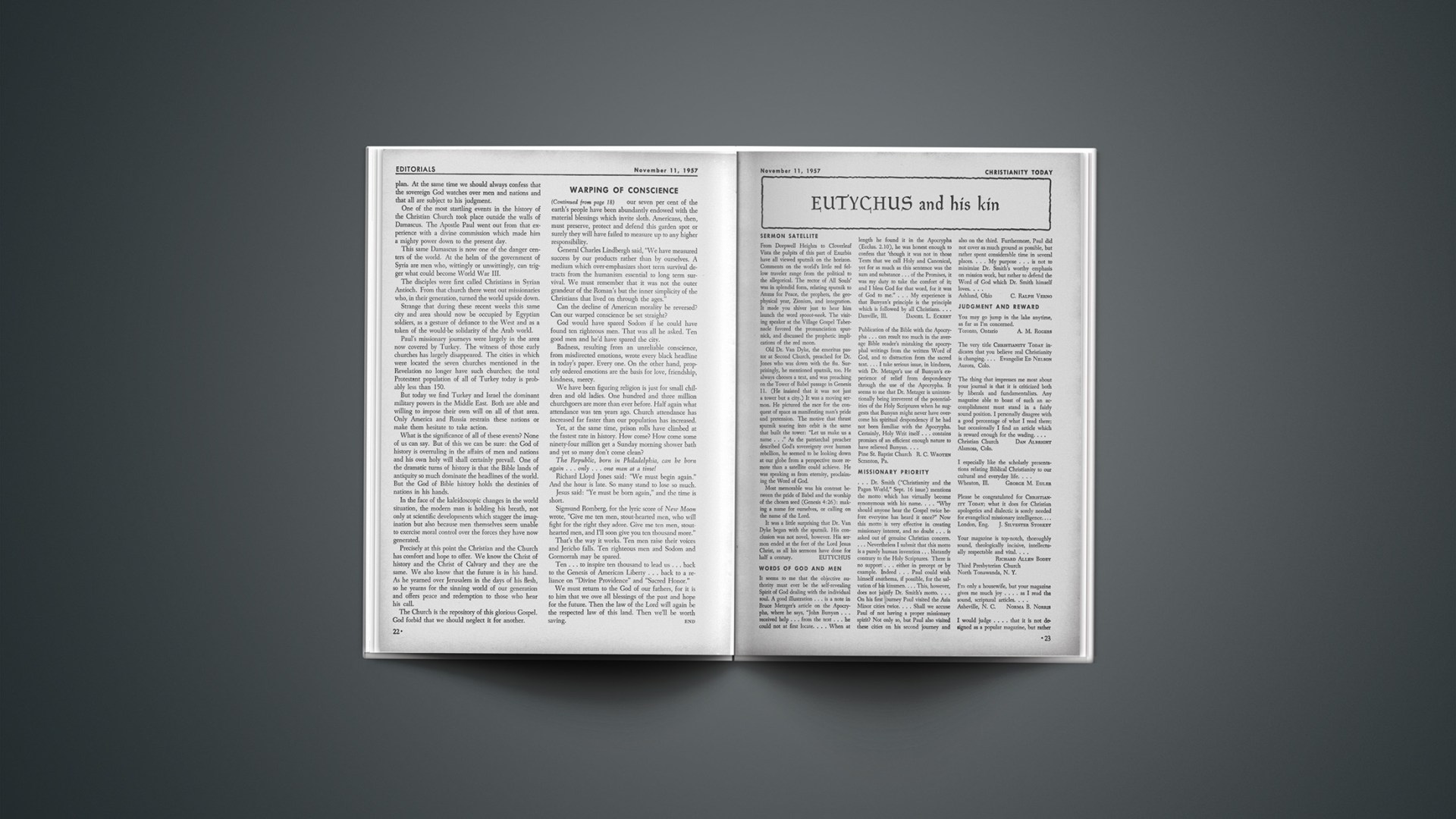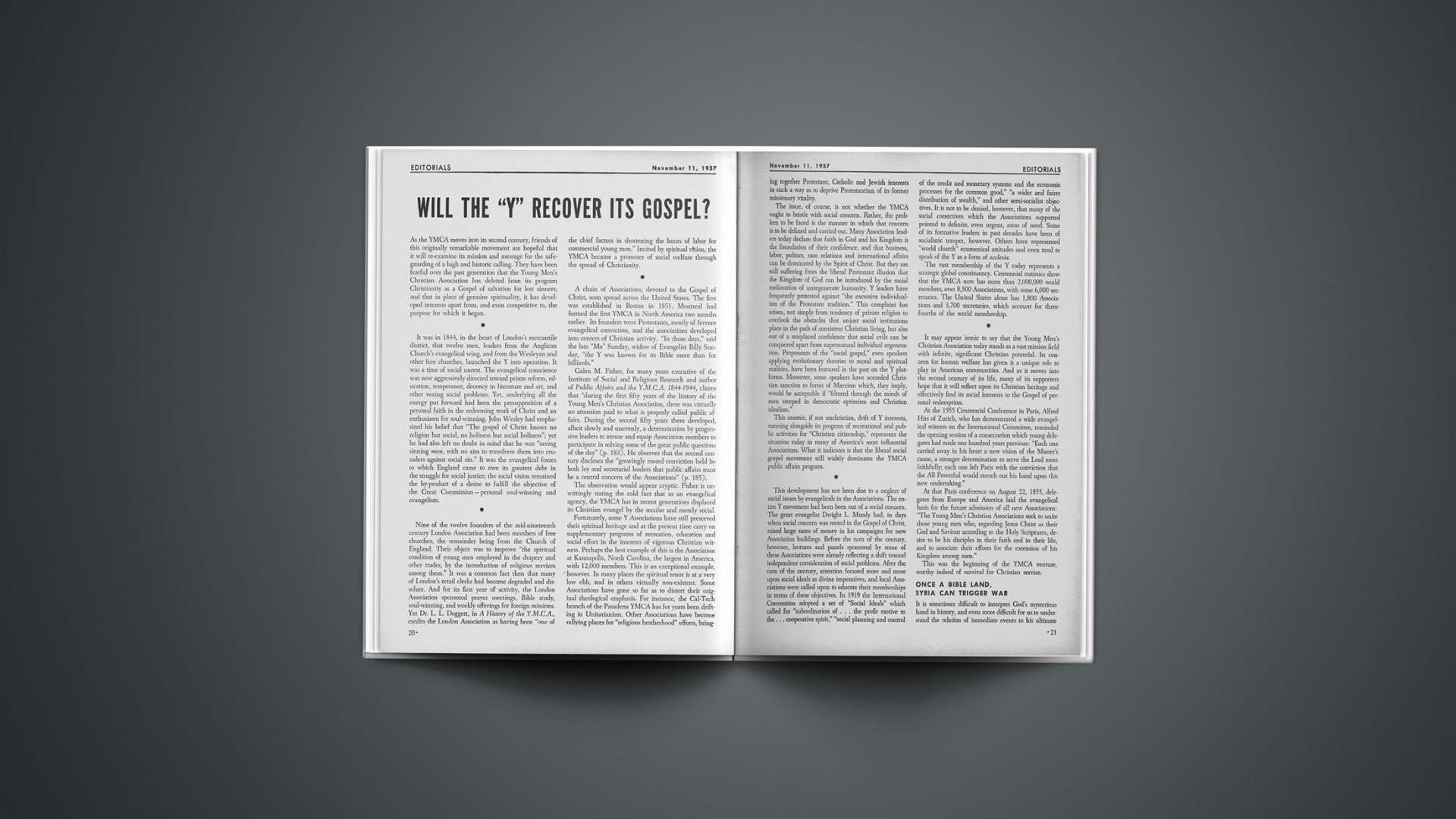It is sometimes said, “The Bible was not given to teach us science.” Most people would agree. Yet the very vagueness of the terms employed has led to two very doubtful inferences. Some students of what is now called the “Liberal School” interpret the phrase as though it meant that the realm of religion and the realm rather vaguely called science had no connection whatever. A prophet may be completely astray as to scientific and historical data, yet may give us very profound thoughts on God. Pressed to its logical conclusion that would enable us to regard the Bible at once as historically untrustworthy and scientifically inaccurate, yet as providing real insight into spiritual reality. The average man instinctively rejects this dichotomy. He holds strictly to the view that a book which is discredited in one aspect is discredited in all. The average Christian views with distrust this division. He remembers our Lord’s appeal, “If I have told you earthly things and ye believe not, how shall ye believe if I tell you of heavenly things?”
The second inference emerging as early as the days of Origen is that while the Bible employs accurately historic incidents and certain scientific facts of nature, it is intended that these should be interpreted allegorically as pointing to a deeper hidden spiritual meaning. Origen gravely misapplied the words, “The letter killeth but the Spirit giveth life,” and has a multitude of followers who at their pleasure discount the historical and scientific in the interest of what they call the spiritual.
An Important Reflection
Without making either of these valiant efforts to cut the Gordian knot, the ordinary thoughtful person reflects that a great company of distinguished scientists have been humble believers in the Bible. He even goes further and reflects that modern science had its origin and development solely in Christian countries. The early scientists who studied nature argued that since God was one, the whole area of organized being would reflect a certain unity of purpose.
While, therefore, we admit that the Bible was not given to teach us science, we would seek some adequate explanation of the relation of revelation to ascertained scientific facts.
The word “science” itself is rather ambiguous. It conveys to the uninitiated the idea that there is one sphere of experience covered by the word. But it is only a general term used for convenience to cover very many diverse and sometimes apparently conflicting experiences.
In its wider application science may be defined as an accumulated mass of data resulting from a diligent use of the principles of observation and reflection. If we accept that definition we may freely concede that the scientist and the theologian are alike subject to the distorting influences of error and prejudice. Either party may observe incorrectly, and either party may lean towards a conclusion as the result of preconceived notions. The true scientist is so well aware of this that he invites a friend to check his observations. The theologian is only too well aware of the many friendly critics that question his deductions.
We have defined science in its wider application as an accumulated mass of data. Indeed, in modern times the range of study in any particular subject has become so extensive that it is not possible to rest in a vague general term. The student can only study his special branch and endeavor to meet the difficulties that result from other branches of study where these infringe on his particular subject. In doing so he is, naturally, dependent on information received from experts or reputed experts in other lines of investigation. The possibility of misinterpretation is thereby increased, but it is the only method of treatment open to a patient investigator.
The popular idea in some quarters that the Bible has been exploded by science does not command the assent of scientists themselves. Haeckel, for example, pays a tribute to the cosmogony of Moses though he professes to find errors in it (History of Creation, Vol. I, p. 38) [See the reference in James Orr’s The Problem of the Old Testament, and the reply there to Haeckel’s exceptions.] We must distinguish between scientific speculation, valuable as it has often proved, and the facts established by science. Nor must we confuse the assertion that “the Bible was not given to teach us science” with the assertion that the Bible contradicts science. The Christian view is that all truth is one and all truth comes from God.
Phenomenal And Scientific Language
In order to clarify our thought we must distinguish between what is called phenomenal language and what is called scientific language. The former describes things as they appear to the beholder. The latter makes an effort to indicate important relations that are not apparent. Carlyle gives an interesting illustration of the difference when he says that both Newton and Newton’s dog saw the apple tall. Only Newton deduced therefrom the law of gravitation that profoundly affected future research. The interesting thing about phenomenal language is that it remains fixed. So long as we have eyes and ears like our present ones, we must see and hear as we do now, however much science may advance. We can correct focal irregularity by means of carefully adjusted lenses but we cannot prevent a man from seeing double without such aids. For that reason phenomenal language is preserved side by side with the more technical phraseology developed through the advance of science. No one questions the competence of a scientist because he remarks that he feels in rather low spirits. It is no reflection on the accuracy of the Bible to assert that it employes phenomenal language.
Limitation Of Range
If, however, the use of phenomenal language imposes certain limits on biblical phraseology, we do well to remember that the range of science imposes necessary limits on it. It has repeatedly been pointed out that creation cannot be demonstrated by purely scientific methods. Science can only deal with the given. As it has been expressed, “Science can only ask, How? It is the province of theology to ask, Why?” Hume imperfectly perceived this relation between science and creation when he declared that inferences from creation were doubtful since “the world is a singular effect.” Followers of Hume like Mill and Spencer did not pursue this particular theory with any ardor. Given a world, we can investigate its character. But that leaves wide open the intriguing questions—Why should a world such as we interpret come into being? How did such a world come into being?
Keeping these simple cautions in mind we can confidently assert that the Bible, so far from being discredited by science, has been a prime influence in directing men’s minds towards a closer investigation of the things of nature.
The Hebrew people viewed this aspiration in the words of the Psalmist: “O Lord how manifold are Thy works, in wisdom hast Thou made them all; the earth is full of Thy riches” (Ps. 104:24). St. Paul expressed the same truth: “For the invisible things of him from the creation of the world are clearly seen, being understood by the things that are made, even his eternal power and Godhead” (Rom. 1:20).
Consistency Of Scripture
Space permits the enumeration of only a few remarkable features in the Bible presentation. The Bible places man at the summit of creation. This is also an implied axiom of science. It is through man’s observation and reflection that the secrets of the universe are disclosed. But why should man be able to interpret a world which he did not make? The Bible’s answer is: Man was made in the image of God. Job tells us that God “hangeth the earth upon nothing” and “compasseth the waters with bounds.” Science discovers that the law of gravitation holds the earth in place and that a due proportion of land and water is essential if living creatures such as we are to continue to exist. Peter tells us, “the elements shall melt with fervent heat.” Science, since its previous picture of the last men living in snow huts on the equator, now by the discovery of nuclear fission at least affords the possibility of such a cataclysm.
Sir James Jeans asserted that the best statement of the origin of our world was contained in the words, “Let there be light” in the Genesis creation story.
We have to guard against importing scientific technicalities into the ordinary language of the Scriptures, but the few instances given are sufficient to demonstrate that the supposed scientific errors in the Bible are the consequence of a too-rigid demand that ordinary speech should express precisely the findings of natural science. A schoolmaster who counseled his class to remain still would be tempted to take the cane to a smart youngster who said, “I cannot, sir, because I am formed out of protons and electrons that move with incredible rapidity.”
The Bible was given to lead us to the “First Great Cause least understood.” It suited its message to the simple apprehension of the ordinary reader and yet it exhibits a caution in utterance that impels us to seek further and further into the mysteries of time and sense.
T. C. Hammond was Principal of Moore Theological College in Sydney, Australia, from 1936–53, and continues his ministry as Rector of St. Philip’s in that city. He holds the B.A. and M.A. degrees from Trinity College, Dublin, and the Th.D. degree from Australian College of Theology. He is author of Authority in the Church, In Understanding Be Men, Perfect Freedom, New Creation, and other apologetical works.

